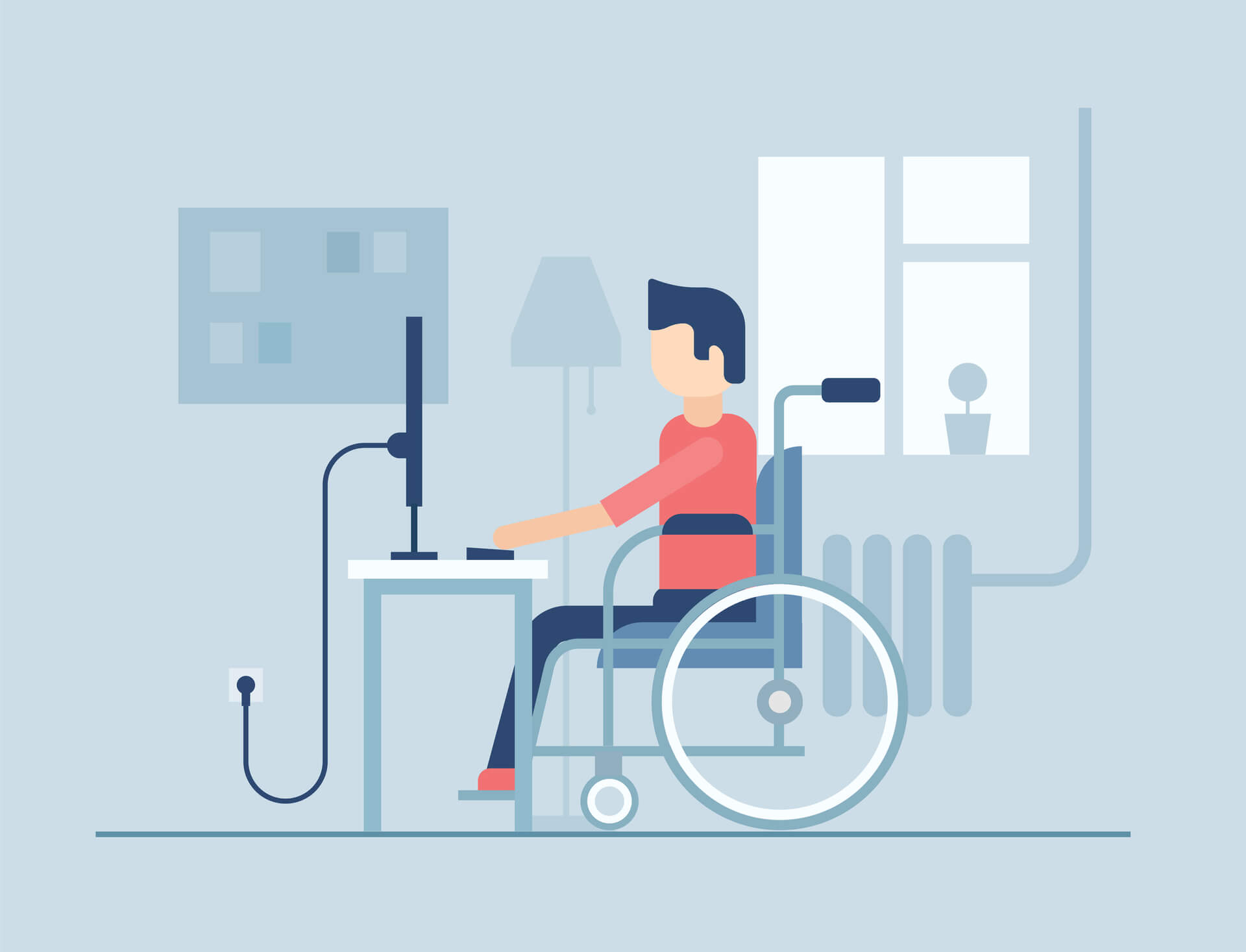Aside from the many benefits of an inclusive workplace, making your business accessible and flexible for people with disability is easier than you think.
It’s important to note that most people with disability don’t require any adjustments to perform their duties at work.
If adjustments are required, practical and financial support is available for your business.
Employers in Australia are required to accommodate modifications or adjustments in the workplace for employees with disability. Workplace adjustments are required by law (unless the adjustment would result in ‘unjustifiable hardship’).
A workplace adjustment (previously referred to as a ‘reasonable adjustment’) is a change to a work process, practice, procedure or environment that enables an employee with disability to perform their job in a way that minimises the impact of their disability.
Workplace adjustments allow a person to:
- Perform the inherent or essential requirements of their job safely in the workplace
- Have equal opportunity in recruitment processes, promotion and ongoing development
- Experience equitable terms and conditions of employment
- Maximise productivity
When you hire a job seeker through Employable Me, your APM employment consultant will work with you to understand if adjustments need to be made.
If your employee works at least eight hours a week, APM can help you access funding so that workplace adjustments are at no cost to your business.
The Australian Government provides financial support for workplace adjustments through the Employment Assistance Fund (EAF).
Your APM employment consultant can connect you with support via the EAF which could help your business to make modifications and adjustments such as:
- Adjustments to your physical workplace
- Modifications to work vehicles
- Special equipment for the workplace
- Information and communication devices
- Auslan interpreting services
- Specialist services for employees with specific learning disorders and mental health conditions
- Disability awareness training for the workplace
- Mental health awareness training
While the adjustments required will differ for each employee with disability, here are some common examples of how you can create a more inclusive workplaces:
- Offering part time or flexible work hours and conditions (including an option to work at home sometimes)
- Providing additional training, mentoring or support
- Moving furniture, widening a doorway or providing a ramp to improve mobility for a person with physical disability
- Providing an Auslan interpreter and/or captioning for an employee with hearing impairment
- Height adjustable workstations
- Purchasing or modifying equipment (for example, speech recognition software for an employee with vision impairment, an amplified phone for someone with a hearing impairment or a digital recorder for someone who finds note-taking difficult)
- Redistributing some duties that a person with disability finds difficult to do
- Allowing a person with disability time off during working hours for rehabilitation or treatment appointments
Remember, most people with disability don’t require adjustments to perform their duties at work and when adjustments are required, practical and financial support is available.
